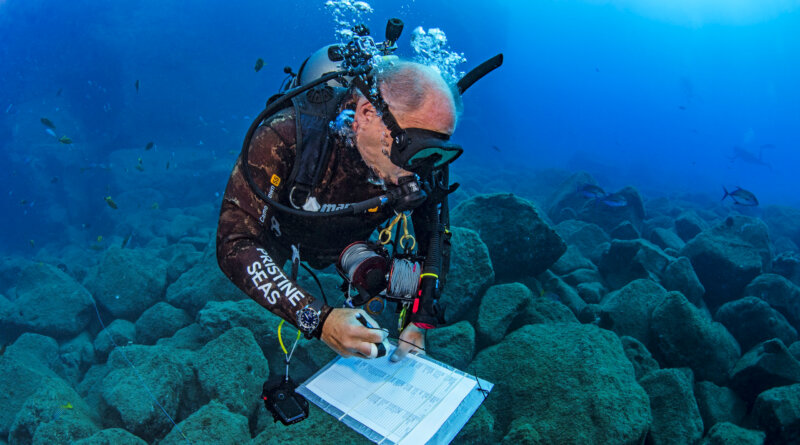New Study Finds Fishing Ban in Marine Protected Area Doesn’t Negatively Affect the Fishing Industry
According to a study published in Science Advances, conducted by a team of researchers from the Mexican Center for Marine Biodiversity, UC San Diego’s Scripps Institution of Oceanography, the Institute of Americas’ Gulf of California Marine Program, and the National Geographic Society, evidence found that large-scale, offshore, and fully Marine Protected Areas (MPAs) successfully protect biodiversity without negatively impacting fishing and food security.
This assessment is the first-ever before-and-after study on the impact of establishing Mexico’s Revillagigedo National Park on the fishing industry. The park was established in 2017, nicknamed the “Galápagos of Mexico,” and is the world’s 13th-largest MPA. Together, a team of U.S. and Mexican researchers found that Mexico’s industrial fishing sector did not suffer any economic loss five years after the park’s creation despite a total ban on fishing activity within the MPA.
The Revillagigedo National Park banned potentially damaging human activities, including fishing, to help the marine populations recover. The park is an underwater home to one of the world’s largest collections of sharks and manta rays, as well as tuna, humpback whales, and five species of sea turtles. In addition, it also harbors more than 300 species of fish, 36 of which are not found anywhere else in the ocean. At first, the Mexican industrial fishing lobby opposed the creation of the National Park, arguing that it would impact their catches and increase their costs.
“Worldwide, the fishing industry has blocked the establishment of the marine protected areas we urgently need to reverse the human-caused global depletion of sea life,” said Explorer in Residence at National Geographic Society, the founder of Pristine Seas and a co-author of the study, Enric Sala in a statement. “This study uses satellite tracking of fishing vessels and artificial intelligence (AI) to show that the fishing industry’s concerns are unfounded. Even the largest of MPAs, which safeguard entire ecosystems, home to thousands of species of marine creatures, do not impact the handful of fish species that the fishing industry seeks out. The larger the MPA, the larger the benefits.”
The study analyzes the behavior and productivity of the Mexican industrial fishing sector before and five years after implementing the largest fully protected MPA in North America.
By using data from satellite tracking, fish catches from the Mexican Fisheries Commission, and new AI tools from the Allen Institute for AI’s Skylight platform, the researchers decided whether the creation of the MPA reduced fishing within the protected area, if fishing yields were affected, and if the creation of the MPA relocated fishing impacts to a larger area, resulting in an overall negative effect on marine biodiversity.
“The use of satellite tracking devices and AI monitoring platforms was critical to show compliance from the fishing industry and for the MPA managers’ to monitor the protected area,” said Dr. Fabio Favoretto, [a] postdoctoral scholar at Scripps Institution of Oceanography and lead author of the study in a statement.
The satellite data studied by Favoretto was produced by government-mandated GPS devices that were installed on about 2,000 fishing vessels. By reviewing the open-source data, researchers could identify the movement of fishing vessels to see if fishing activities were conducted. The team then employed machine-learning-enabled techniques to identify patterns associated with boats.
Skylight revealed only a few isolated cases of illegal fishing within the MPA after 2017, emphasizing the efficacy of technology in helping those monitoring and protecting the 147,000 square kilometers of water within the park’s perimeter.
In addition, the results of the study dispute the Mexican fishing industry’s argument that the park could cause a possible loss of 20 percent of their tuna and other catches and instead provided proof that large, fully protected MPAs can contribute to a more sustainable and equitable use of the ocean, without significant economic repercussions on the fishing industry.
This study was funded by Oceans 5 and the Patrick J. McGovern Foundation. For the complete study, please visit https://shorturl.at/iW789.


